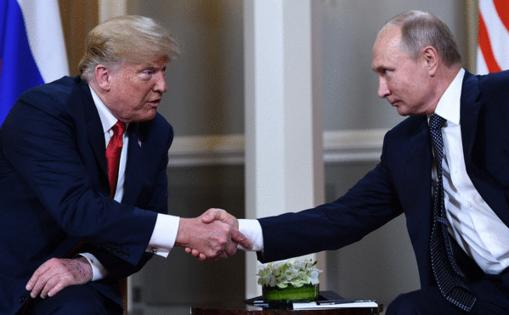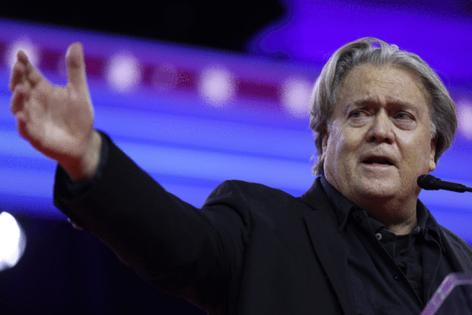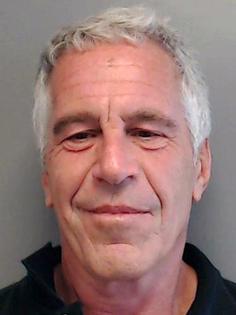From Bannon to Putin: Emails show Epstein's efforts to influence global politics
Published in News & Features
MIAMI — From his luxurious homes in Palm Beach, Manhattan and across the globe, Jeffrey Epstein projected the image of a global powerbroker and kingmaker.
He closely advised former White House chief strategist and right-wing provocateur, Steve Bannon, on how to build a political movement in Europe; offered to provide the Kremlin insight into President Donald Trump’s way of thinking and frequently boasted about how he was close to the rich, powerful and famous, according to emails and phone messages released by the U.S. House Oversight Committee.
The tranche of more than 20,000 documents provides further insight into how the convicted sex trafficker continued to mingle with an extraordinary network of powerful figures across the world even after his crimes became public knowledge.
At times, Epstein served as a matchmaker, brokering introductions between influential people, the messages show. At others, he pontificated about his ideas on global finance and geopolitics.
But messages reveal how he also knowingly used offensive language, once commenting about Latin America: “Whole South America Brazil Venezuela Argentina. Don’t know why they are so dirty given the fact that there are so many maids.”
Epstein often claimed to know influential figures like former French politician Jack Lang, whose foundation he had bankrolled; leaders of states in the Arab League who he claimed were meeting him to give him a “download” of what was discussed at the organization’s annual meeting in Tunis in 2019; and the president of the sparsely populated but resource-rich nation of Mongolia.
Other political figures who corresponded with the disgraced financier over the years, the released emails show, are former Israeli Prime Minister Ehud Barak; Norwegian diplomat and key architect of the 1990 Middle East Peace Accords in Oslo, Terje Rød-Larsen; and Sultan Ahmed bin Sulayem of the United Arab Emirates. British diplomat Peter Mandelson was fired by the United Kingdom earlier this year from his role as ambassador to the U.S. after his association with Epstein was revealed.
The multimillionaire financier, who died in federal custody in 2019, was also a fabulist and serial illusionist. It is unclear from the messages how many of his claims were true.
Epstein and the global right
As Steve Bannon sought to build a right-wing political movement on the other side of the Atlantic in 2018, Epstein had some advice for him.
“If you are going to play here, you’ll have to spend time, Europe by remote doesn’t work,” Epstein wrote to him in an email in late-July of that year. “Lots and lots of face time and hand-holding.”
A right-wing resurgence in Europe is “doable” but “time consuming,” Epstein told Bannon. He offered to help out and introduce him to European political figures, provided Bannon spent more time on the continent.
“The fear is that you gin up their hopes and emotions and then abandon them,” warned Epstein. “I think you want to be an insider, not an outsider flying in and out.”
Epstein even suggested that former Slovakian diplomat, Miroslav Lajčák — then president of the United Nations General Assembly — could “guide” the “EU project.”
It is not clear from the released messages which, if any, European leaders Bannon actually met with on Epstein’s advice. Miroslav Lajčák did not respond to the Herald’s requests for comment.
The messages suggest Bannon tried to schedule a meeting with Lajčák a few times but it’s unclear whether the two actually met.
The Herald sent questions to an email account associated with Bannon’s podcast, "War Room," but did not hear back.
While he was famously friends with former Democratic President Bill Clinton and gave heavily to Democratic political candidates and committees, Epstein’s connections with right-wing movements is unsurprising.
The financier had also spent decades aspiring to seed the human race with his DNA by impregnating women at his vast, secluded desert ranch in New Mexico. Epstein’s vision reflects his fascination with “transhumanism” or the science of improving humans through genetic engineering. Critics describe it as the modern-day version of eugenics, the now-discredited study of improving the human race through engineered breeding.
The Nazis used eugenics to justify their genocide and ethnic cleansing of Jews, Romani, the disabled, political dissidents and rivals and other minority communities in Europe in their efforts to “purify” the Aryan race.
Epstein, who was Jewish and frequently donated to yeshivas and Jewish foundations, showed few qualms in joking about the Holocaust, the messages show.
He wrote “Kristallnacht always has the big fire,” in a congratulatory message sent to an undisclosed individual after British far-right activist Tommy Robinson was released on bail in August 2018. Robinson was jailed on contempt charges for filming a trial despite a court order prohibiting such coverage.
Kristallnacht, which translates to “Night of Broken Glass,” refers to an organized antisemitic pogrom carried out in Germany by Nazi paramilitaries and the party’s youth wing, the Hitler Youth, in 1938.
Epstein and the other person continued to riff on the idea and appear to be referring to the impending November midterm election in 2018 as the Holocaust.
“Come join us at Auschwitz, opening night, special,” Epstein wrote about the November elections.
In May, 2019, Epstein also suggested the person meet with India’s prime minister, Narendra Modi, whose nationalist political party has been accused of discriminating against the country’s minorities, especially Muslims.
In another exchange, Epstein shared a Huffington Post story about how there was little evidence that Bannon’s claims that candidates he backed would dominate elections in Europe would actually come true. The reporter’s name was Akbar Shahid Ahmed.
“Can this really be his name?” Epstein wrote. “Sounds like an SNL skit.”
Help for the Kremlin
With only a few weeks to go before President Trump met with the Russian President Vladimir Putin in Helsinki, Epstein had a message for Thorbjørn Jagland, former Norwegian prime minister: Tell Putin that he must get his top diplomat to speak to him to understand Trump.
“I think you might suggest to Putin, that Lavrov, can get insight on talking to me,” he wrote in an email to Jagland, who at the time was head of the Council of Europe, on the afternoon of June 24, 2018. Lavrov is an apparent reference to Sergei Lavrov, Russia’s longtime foreign affairs minister.
Epstein then reminisced to Jagland about how Vitaly Churkin, Russia’s ambassador to the United Nations until his death in 2017, was “great” and would often speak to him about Trump.
“He understood Trump after our conversations,” Epstein wrote. “It is not complex. He [Trump] must be seen to get something.”
Jagland responded saying he was meeting Lavrov’s assistant the next day and would suggest a meeting with Epstein.
It is not clear whether such a meeting took place. The Russian Embassy in the United States did not respond to requests for comment.
At the summit on July 16, 2018, Trump and Putin met in-person for the first time. After an hourslong closed-doors meeting, Trump contradicted U.S. intelligence assessments and said that he did not believe that Russia had interfered in the 2016 U.S. elections.
The next day, Epstein wrote to the former U.S. Treasury Secretary, Larry Summers, expressing his disappointment and calling Trump “totally predictable.”
“I’m sure his view is that it went super well,” wrote Epstein. “He thinks he has charmed his adversary … He has no idea of most things.”
©2025 Miami Herald. Visit miamiherald.com. Distributed by Tribune Content Agency, LLC.












Comments